4 - Jesus Frequency: When Rome Won
Sep 18, 2025
How the Revolution Became Religion
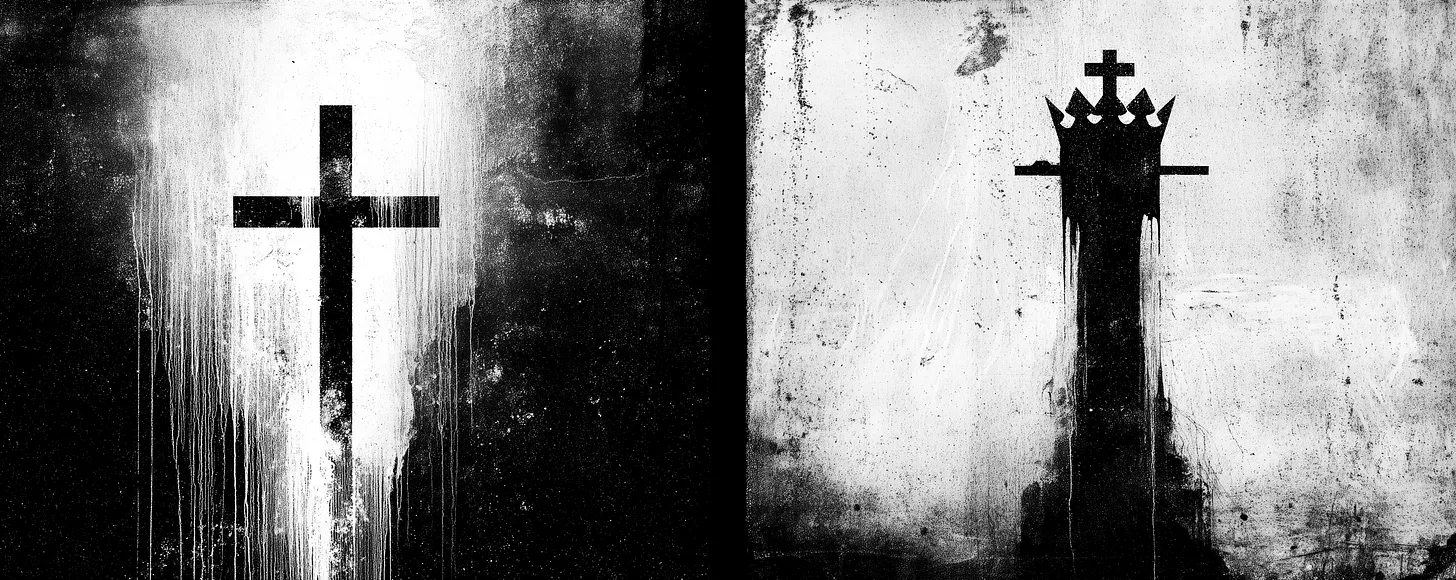
Right now, millions are leaving churches while keeping their faith.
They sense what happened: the revolution was captured. The liberator became logo. The kingdom became corporation. They're not losing God. They're finding Him outside cages built by those who claimed to speak for Him.
For exactly forty years, the original Jesus movement operated as intended. From Pentecost to Temple destruction in 70 AD, they lived the revolution. Shared everything in common. Met in homes, not temples. Recognized no hierarchy beyond service. Practiced direct divine access without mediation. Women prophesied alongside men. Slaves sat equal with masters. The kingdom Jesus demonstrated was actually manifesting through ordinary people living extraordinary love.
No buildings. No budgets. No clergy. No creeds. Just the Spirit moving through gathered hearts, creating spontaneous community that threatened every existing power structure. The Roman authorities couldn't understand it. The Jewish authorities couldn't control it. The economic systems couldn't exploit it. A movement of people who owned nothing individually but everything collectively, who needed nothing from empire because they had everything in each other.
This was the adventure.
Building a new human society through spiritual transformation rather than political revolution. Walking with the living truth rather than managing dead doctrine. The thrill of discovering the kingdom actually worked when lived rather than just believed.
Then Rome destroyed the Temple, scattering the Jerusalem community. The movement's center shifted from those who knew Jesus to those who knew about him. From Aramaic-speaking Jews who understood his context to Greek-speaking Gentiles who needed translation. From oral tradition carried by witnesses to written documents controlled by scribes. From demonstration to description. From experience to explanation.
The mutation had begun.
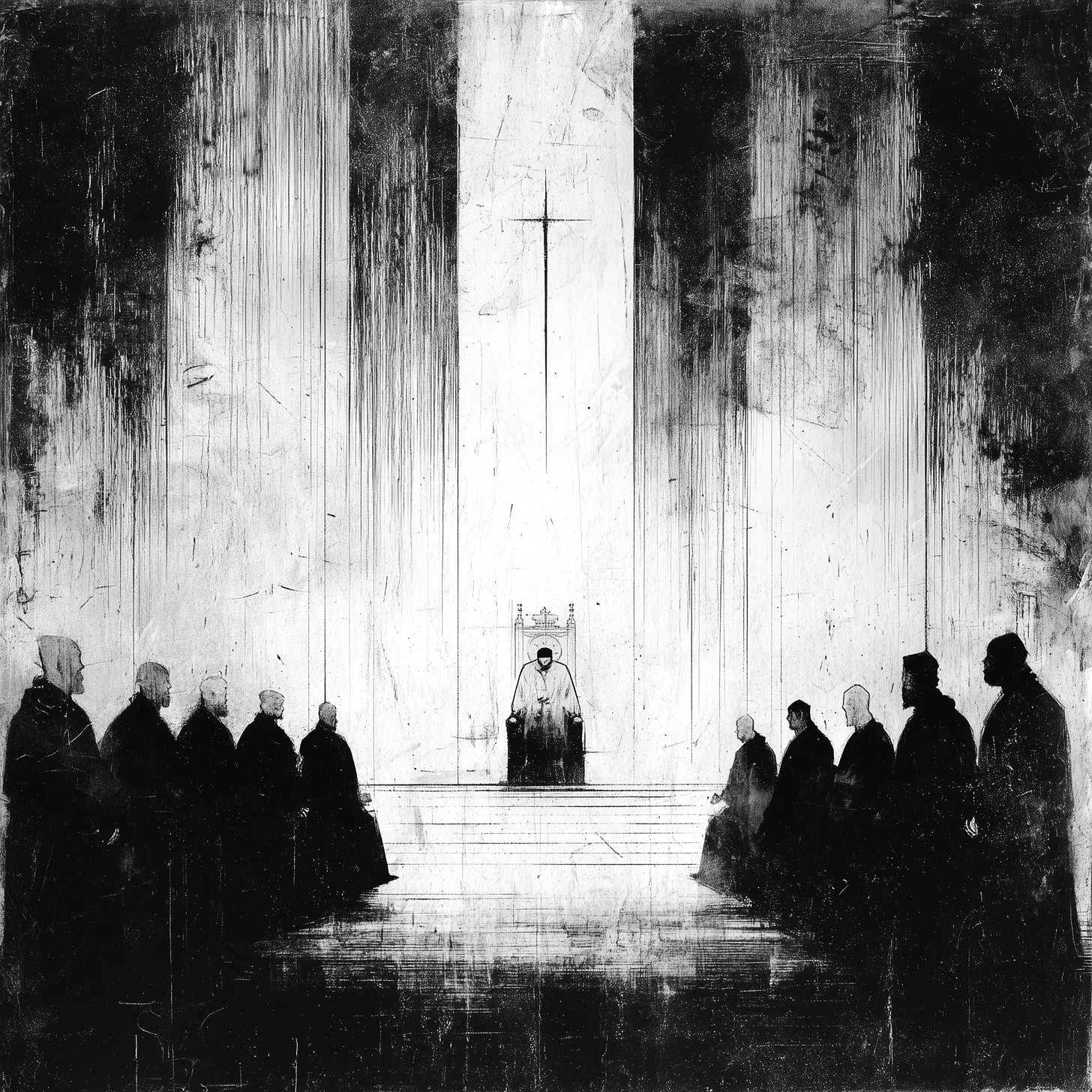
The Mechanics of Capture
Watch how revolutionary movements get institutionalized. Not through violent overthrow but gradual replacement. Not dramatic destruction but systematic substitution. Each small compromise seems reasonable. Each adaptation appears necessary. Each modification looks like growth. But trace the trajectory and witness cancer, not development. Mutation, not maturation.
First comes organization. The spontaneous becomes structured. What emerged naturally gets managed intentionally. Meetings need coordination. Resources need distribution. Decisions need process. Nothing wrong with organization itself—bodies need skeletons. But organization attracts organizers, and organizers tend to value organization above organism.
The early church's solution seemed brilliant: appoint deacons to handle logistics while apostles maintained spiritual focus. Division of labor. Efficient allocation. Reasonable response to growth. But separation creates hierarchy, hierarchy creates power differentials, and power differentials attract those who seek power rather than service.
Within a generation, the servants had become rulers. The deacons who distributed bread now controlled access. The administrators who facilitated fellowship now determined membership. The structure designed to support the organism had become the organism. The skeleton had consumed the flesh. The means had become the end.
You can track this mutation through Paul's letters.
Early epistles breathe freedom: "Where the Spirit of the Lord is, there is liberty." Later epistles establish control: qualifications for bishops, submission to authority, proper order for worship. Not because Paul changed but because institutions demand institutionalization. The movement that began with wind blowing where it will was developing weather maps and wind schedules.
The living brotherhood of the kingdom—where each person was a priest, prophet, and minister—calcified into professional clergy and passive laity.
The adventure of transformation became the routine of religion.
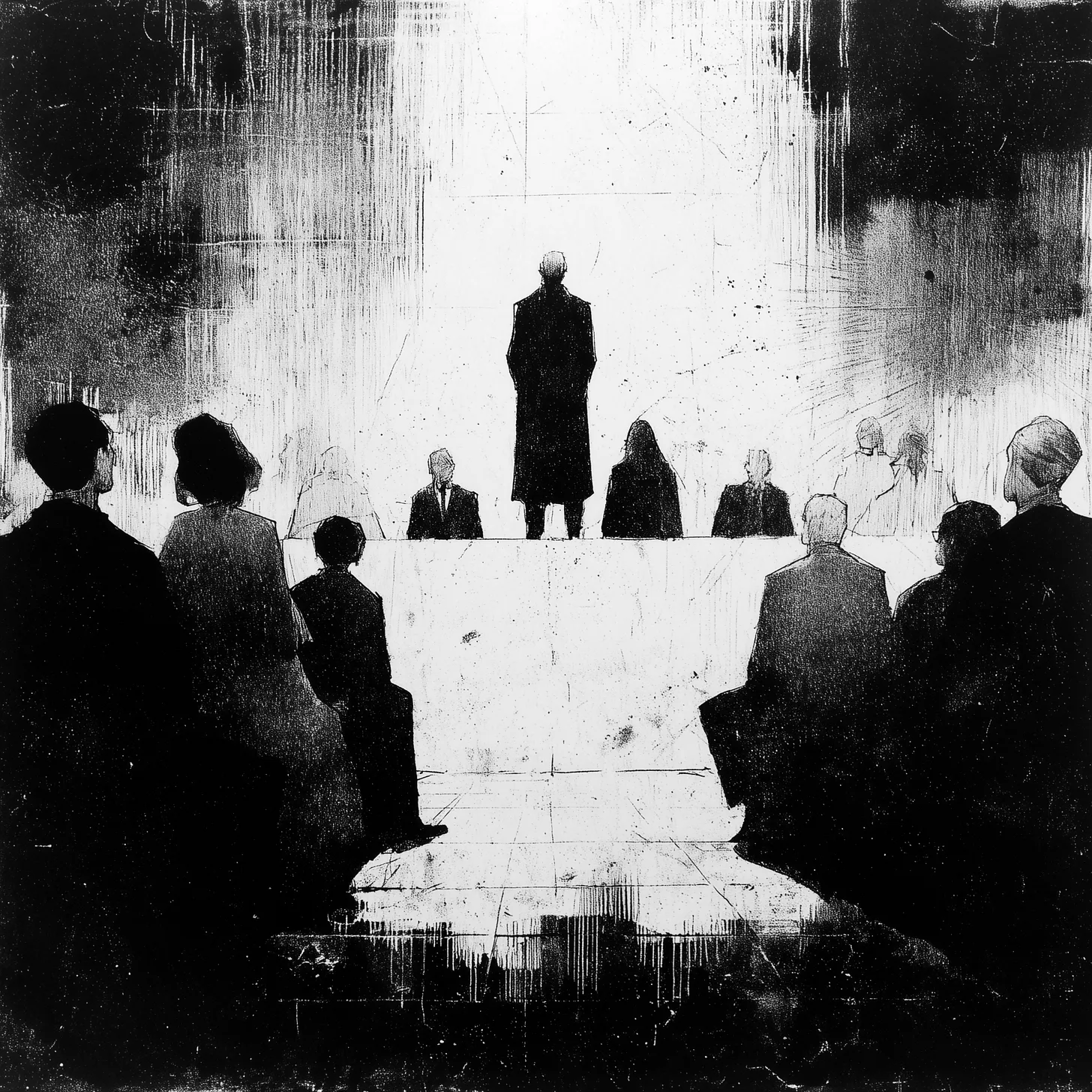
The Constantine Transaction
In 325 AD, Emperor Constantine convened the Council of Nicaea. The revolutionary movement that Rome crucified was now Rome's official religion. The faith that threatened empire had become empire's tool. The kingdom that operated through service now functioned through sovereignty.
Constantine didn't convert to Christianity. He converted Christianity to Rome. The emperor didn't embrace the faith. He employed it. Didn't submit to its truth. Deployed its power. The cross that once symbolized radical love transformed into logo of institutional authority. The executed criminal's tool of torture became empire's brand.
But Constantine was symptom, not cause.
The mutation had been developing for centuries. Each generation moving further from source, each iteration adding layers of institutional necessity. By the time Rome offered partnership, the church was ready. The revolutionary movement had already become revolutionary institution. The organism had already calcified into organization.
The Nicene Creed itself reveals the mutation. It spends more words on correct belief about Jesus's nature than on his actual teachings. Nothing about the kingdom within. Nothing about loving enemies. Nothing about direct divine access. Just metaphysical formulations requiring expert interpretation, creating perpetual need for theological professionals.
The Father Jesus revealed, running to embrace prodigals, forgiving before asked, loving unconditionally, got replaced with cosmic judge requiring blood payment. The kingdom Jesus said was "at hand" and "within you" got postponed to afterlife and located in heaven. The transformation available now became salvation promised later.
Watch the inversion:
- Jesus washed feet. Bishops wore crowns.
- Jesus served the least. The church served the greatest.
- Jesus owned nothing. The church owned everything.
- Jesus included outcasts. The church excommunicated questioners.
- Jesus demonstrated the kingdom. The church described it.
- Jesus gave authority to serve. The church used authority to rule.
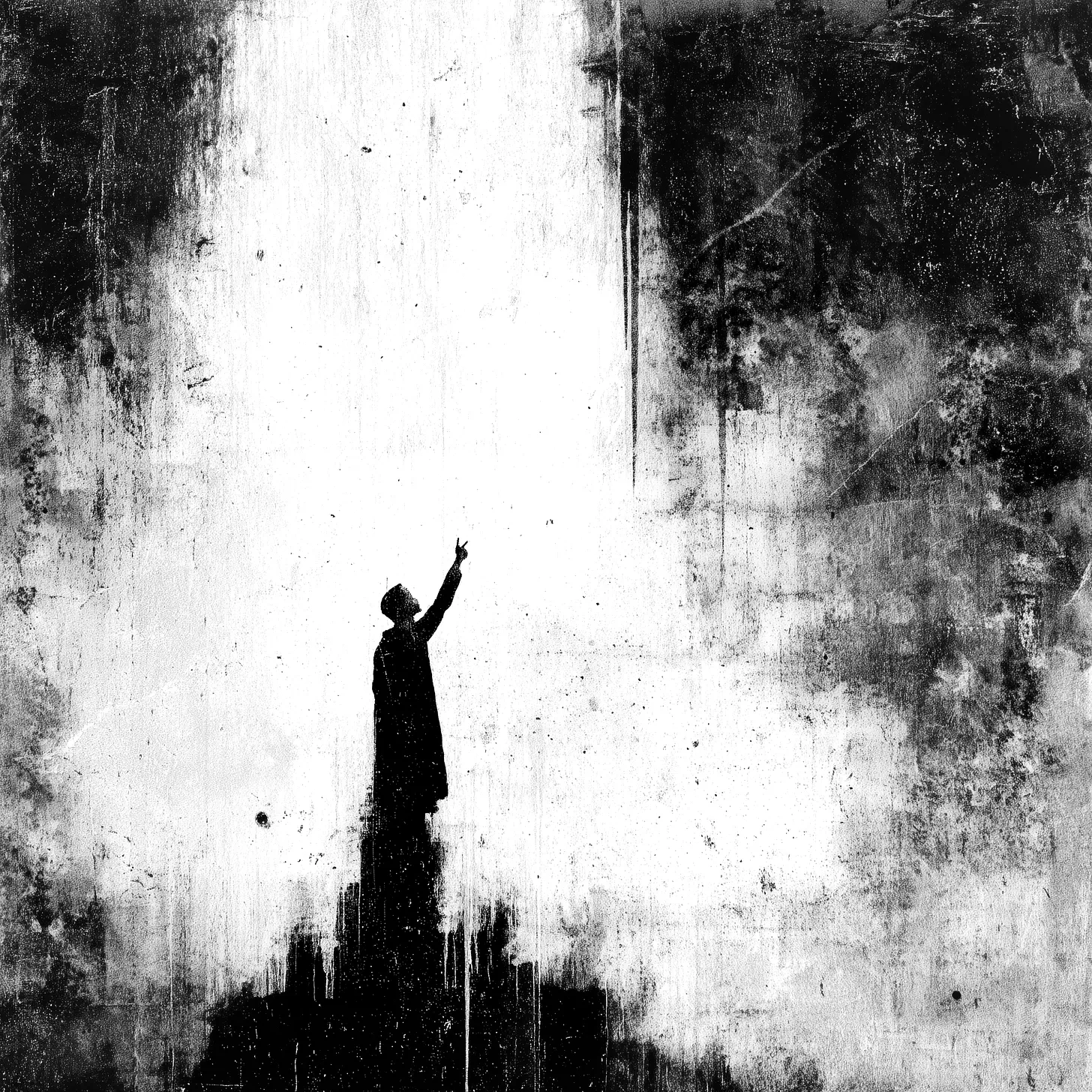
The Seminary System
The mutation deepened through credentialing what was once calling. Seminaries transformed spiritual gifts into academic degrees. What emerged from encounter became curriculum. Direct revelation replaced by approved interpretation.
Jesus chose fishermen and tax collectors, not scribes and Pharisees. He valued transformation over education, encounter over expertise. But the church reversed this, creating a professional class of religious specialists. The priesthood that Jesus abolished, the veil torn top to bottom, got reconstructed with better architecture.
Instead of one high priest, thousands of ordained ministers. Instead of Temple access, church membership. Instead of animal sacrifice, doctrinal compliance. The barriers Jesus destroyed got rebuilt with updated materials.
You want to serve God? First prove you can parse Greek. Want to share what you've experienced? First demonstrate proper hermeneutics. Want to lead worship? First complete the credentialing process. The Spirit that blows where it will now requires institutional certification to be recognized.
The brotherhood where everyone taught and learned from each other became lecture hall where experts dispense approved knowledge to students. The community where spiritual insight could come from anyone became hierarchy where revelation flows only through proper channels.
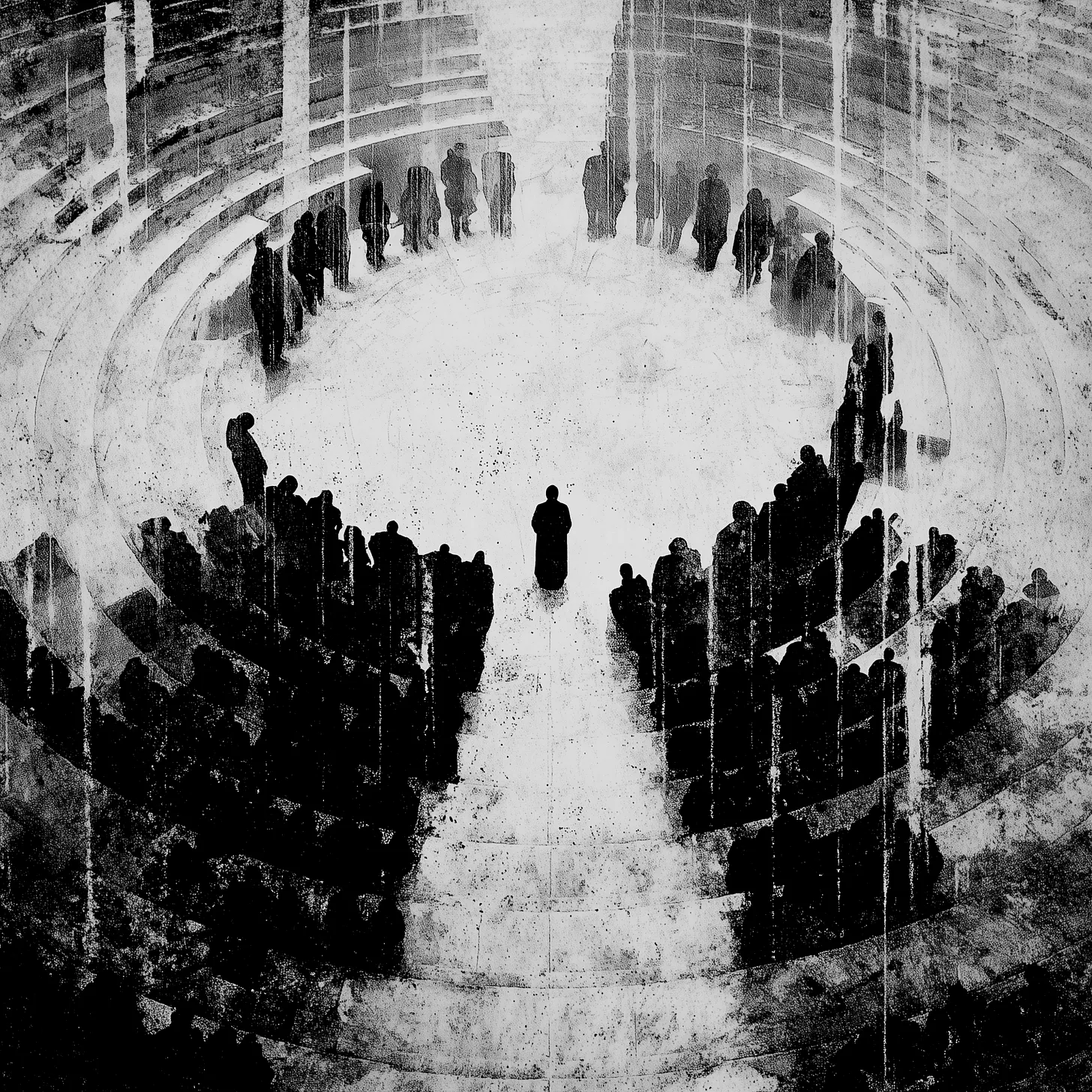
The Building Addiction
The externalization of the internal kingdom manifests most visibly in architecture. Jesus said the kingdom was within. The church built it without.
House churches became basilicas. Upper rooms became cathedrals. Gatherings became services. The movement that met in homes built monuments. The faith that needed no temple constructed thousands.
Each building project justified by growth, by mission, by reaching more people. But buildings demand maintenance. Maintenance demands money. Money demands systems. Systems demand control. The structure meant to facilitate gathering becomes the reason for gathering.
Medieval cathedrals—magnificent structures reaching toward heaven, built on backs of peasants who would never own homes. Resources that could feed thousands redirected to stone monuments. The poor giving their last coins to build palaces for God who said he didn't dwell in temples made with hands.
The pattern continues. Crystal cathedrals costing hundreds of millions while homeless camps expand in their shadows. Mega-churches with coffee shops, bookstores, gyms—spiritual shopping malls where the gospel gets marketed. The budget becomes the mission. The building becomes the ministry.
The Father's house with many rooms, Jesus's metaphor for infinite spiritual capacity, became literal real estate. The living stones built into spiritual temple became actual stones built into physical temples. The body as temple of the Spirit became buildings called temples of God.
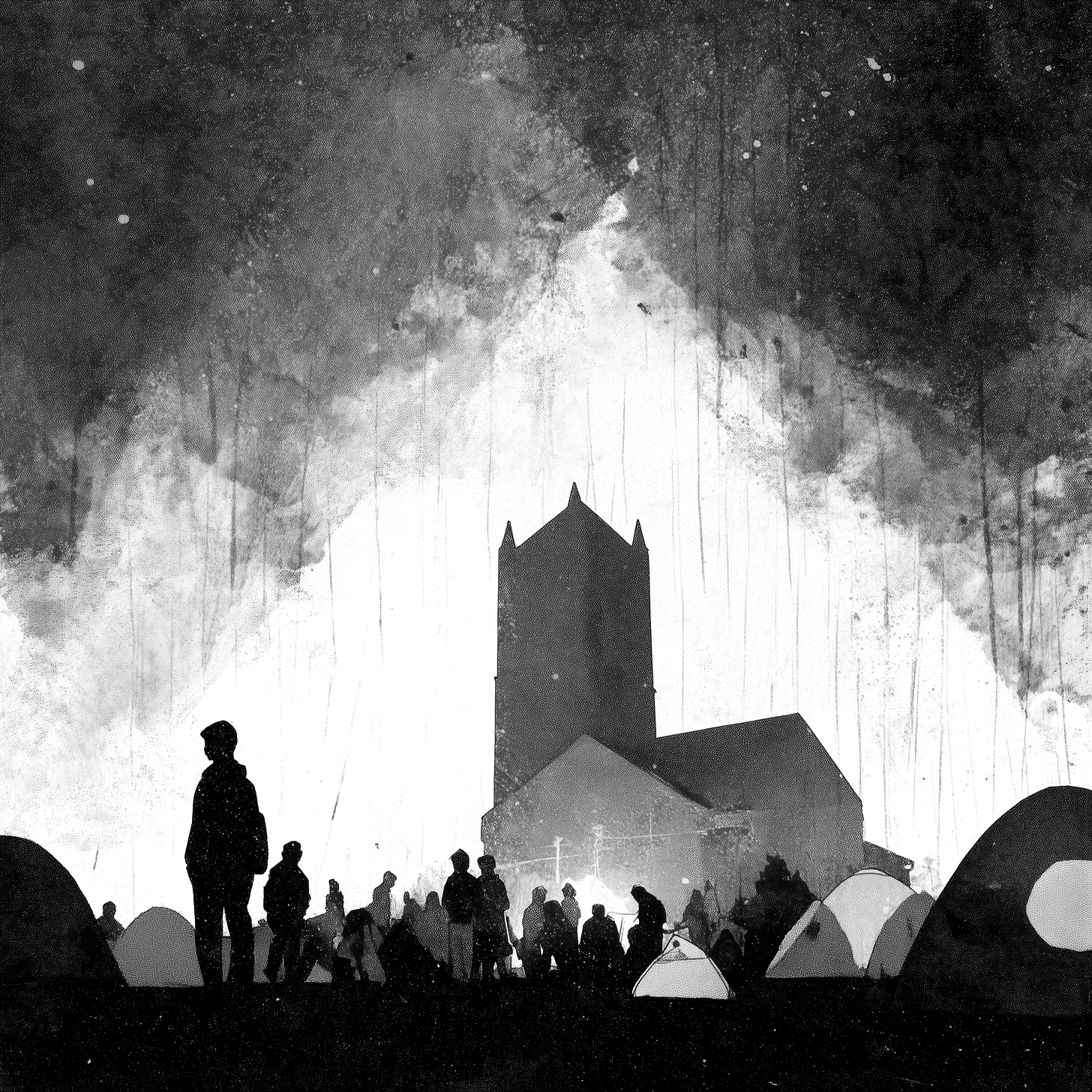
The Economic Engine
Follow the money to find the mutation's metabolism.
The Jerusalem church shared everything. No one claimed private ownership. Resources flowed to need. Wealth meant nothing, generosity everything. This wasn't imposed system but spontaneous expression. When you recognize everyone as family, sharing becomes breathing.
But institutions need budgets. Buildings require maintenance. Clergy require salaries. Programs demand funding. The sharing economy became tithing system. Obligatory percentage rather than spontaneous generosity. The voluntary became mandatory. The joyful became juridical. Giving transformed from expression of love to religious tax.
By medieval times, the church was Europe's largest landowner, richest institution, primary bank. Salvation got monetized through indulgences, literal purchase of forgiveness. Grace became commodity. Heaven turned marketplace. The movement that began with "freely you received, freely give" now had complex pricing structures for spiritual services.
The economic mutation revealed deeper transformation. When institution becomes business, members become customers. When salvation requires payment, priests become salesmen. When grace needs management, managers become necessary. The entire structure depends on artificial scarcity of what's infinitely abundant—divine love.
Jesus said you cannot serve God and money. But the institution found a way.
Make serving money into serving God. The prosperity gospel perfects this mutation. God wants you rich to fund his work. The movement that blessed the poor now teaches poverty as curse, wealth as blessing.
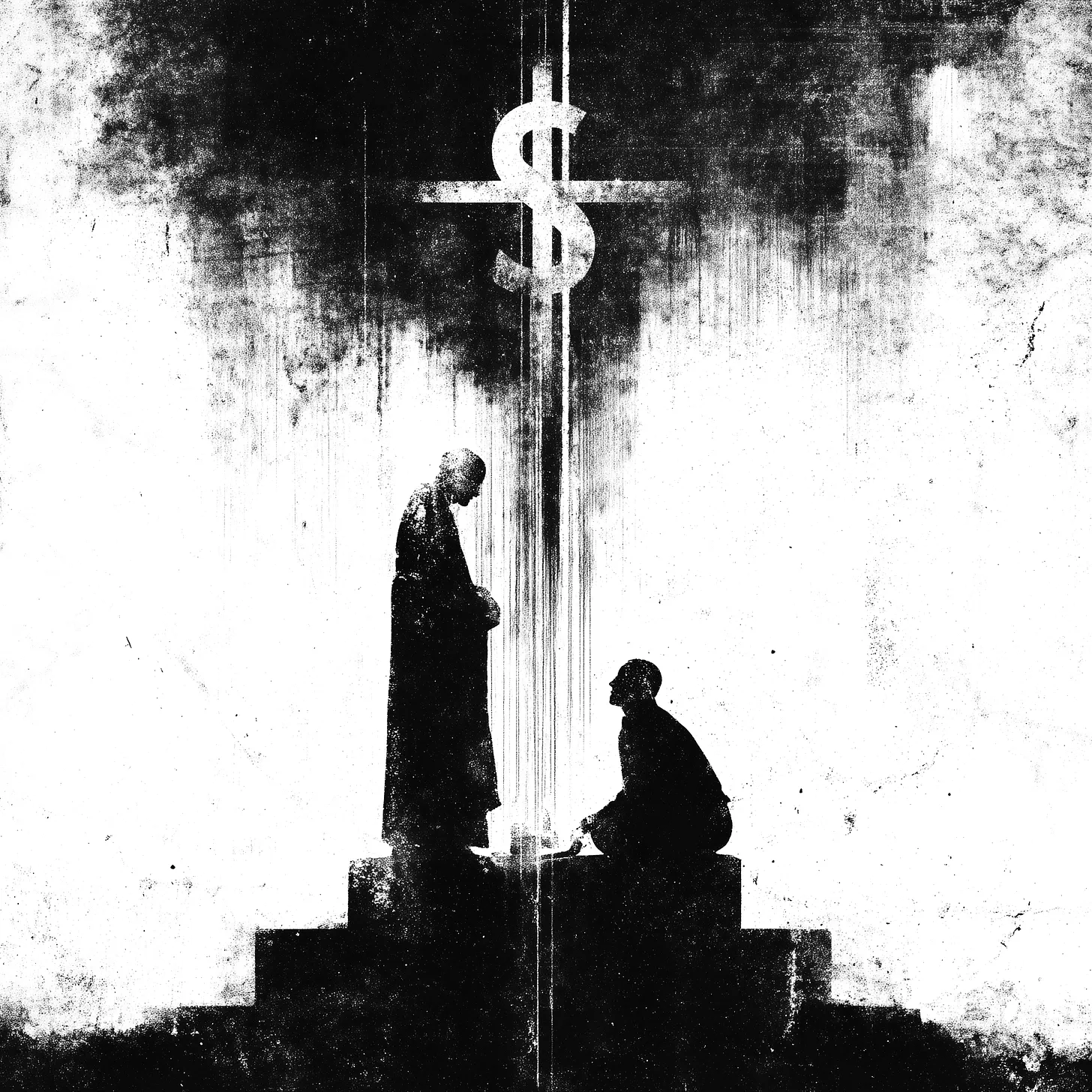
The Authority Addiction
Power corrupts, but religious power corrupts absolutely because it claims divine mandate. The institution that speaks for God becomes God in practice. The structure that manages sacred access becomes sacred itself. The system that interprets divine will becomes indistinguishable from divinity.
Watch the progression: Jesus gave authority to heal and serve. First generation used it to serve. Second generation used it to lead. Third generation used it to rule. By the fourth century, authority itself had become the point. Not what authority enabled but authority as end in itself. Not power for service but service to power.
The papal system perfected this mutation. One man claiming to be Christ's representative on Earth. Infallible when speaking officially. Able to determine eternal destinies. Controlling access to sacraments necessary for salvation. The fisherman Peter who denied Jesus three times became foundation for throne that claimed to speak for Jesus permanently.
But Protestantism just multiplied the problem. Instead of one pope, thousands of little popes. Every pastor a miniature monarch in his spiritual kingdom. Every denomination its own empire. Every church its own hierarchy. The Reformation reformed structure but maintained mutation. Institutional authority over direct access, mediated relationship over immediate presence.
The sonship Jesus revealed—every person a child of God with direct access to the Father—became membership requiring institutional approval. The brotherhood of the kingdom became hierarchy of the church. The family of God became organization chart.
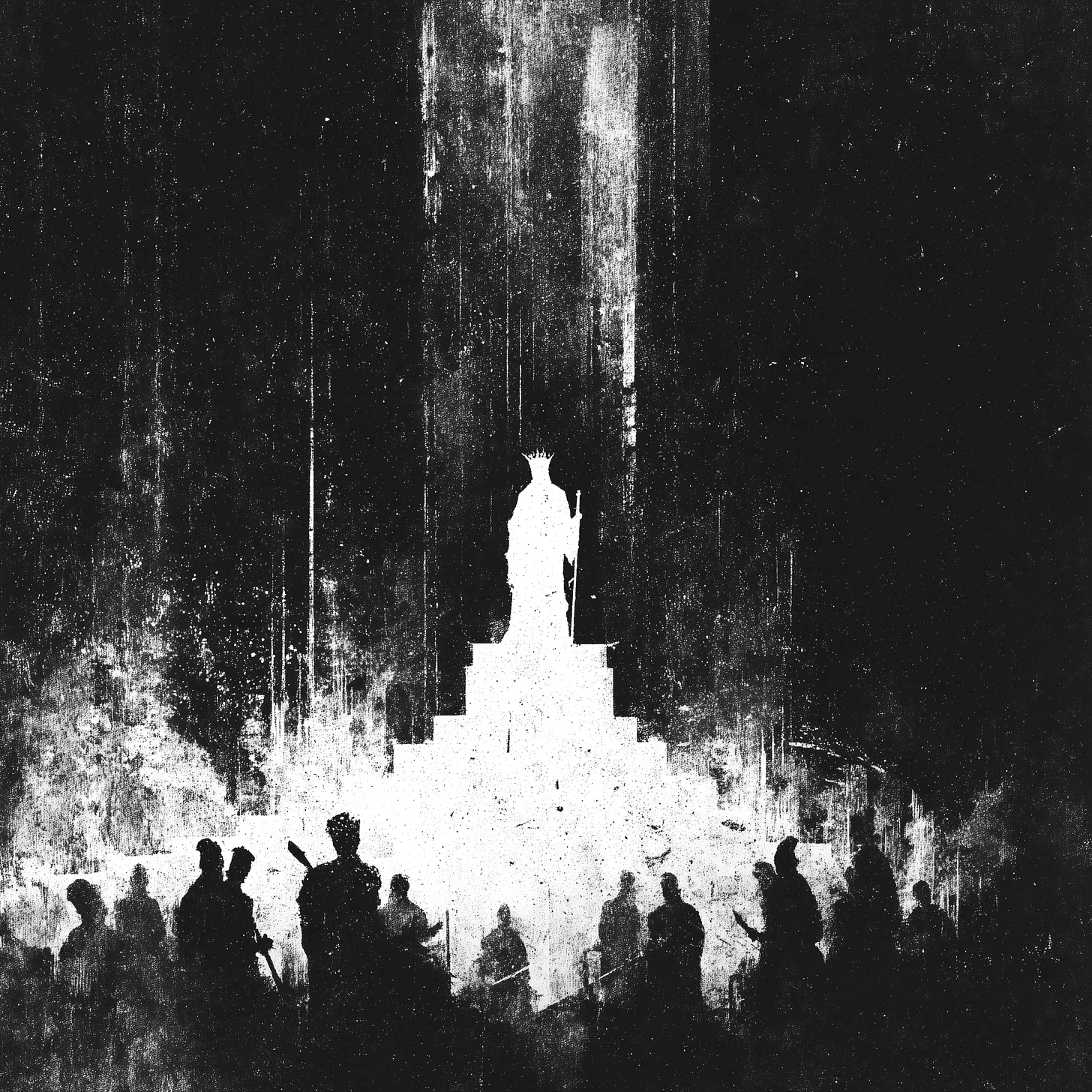
The Deep Capture
This addiction to authority didn't remain within church walls. It metastasized into sovereign orders that further gatekeep divine access.
The Knights of Malta reveal institutional capture's final form. Founded to serve sick pilgrims, they became sovereign entity requiring noble bloodlines. They maintain diplomatic relations with 110 nations, issue passports, operate as state without territory. A religious order that owns prime real estate in Rome and Malta while preaching poverty. A medical mission that became military intelligence network.
Fort St. Angelo's dungeons, where they imprisoned Caravaggio, where Ottoman prisoners were beheaded, where the Grey Lady still haunts—these aren't historical curiosities. They're physical manifestation of how service becomes sovereignty. The order that took vows of poverty controls submarine cables connecting continents. The knights who promised to heal hold judicial appointments, intelligence positions, Special Forces connections.
When Chief Justice Roberts joked about Malta being an "impregnable fortress" after controversial rulings, he revealed more than intended. His alleged membership in Knights of Malta English Priory, exposed in court documents forcing his recusal, creates sworn loyalty to order predating and potentially superseding the Constitution. When six Supreme Court justices recuse themselves after this membership surfaces in court filings, we're not seeing coincidence but continuity.
Orders within orders.
Knights who are judges.
Judges who are knights.
Intelligence officers sworn to religious orders older than their nations.
The same families across centuries, the same names in banking, judiciary, intelligence. Not conspiracy but simple institutional capture playing out over generations.
The UK Home Office quoting Bible verses to prove Christianity isn't peaceful enough for asylum seekers. Government bureaucrats determining which scriptures are acceptable. The institution that executed Jesus now interprets what Jesus meant.
The state that crucified truth now decides what truth means.
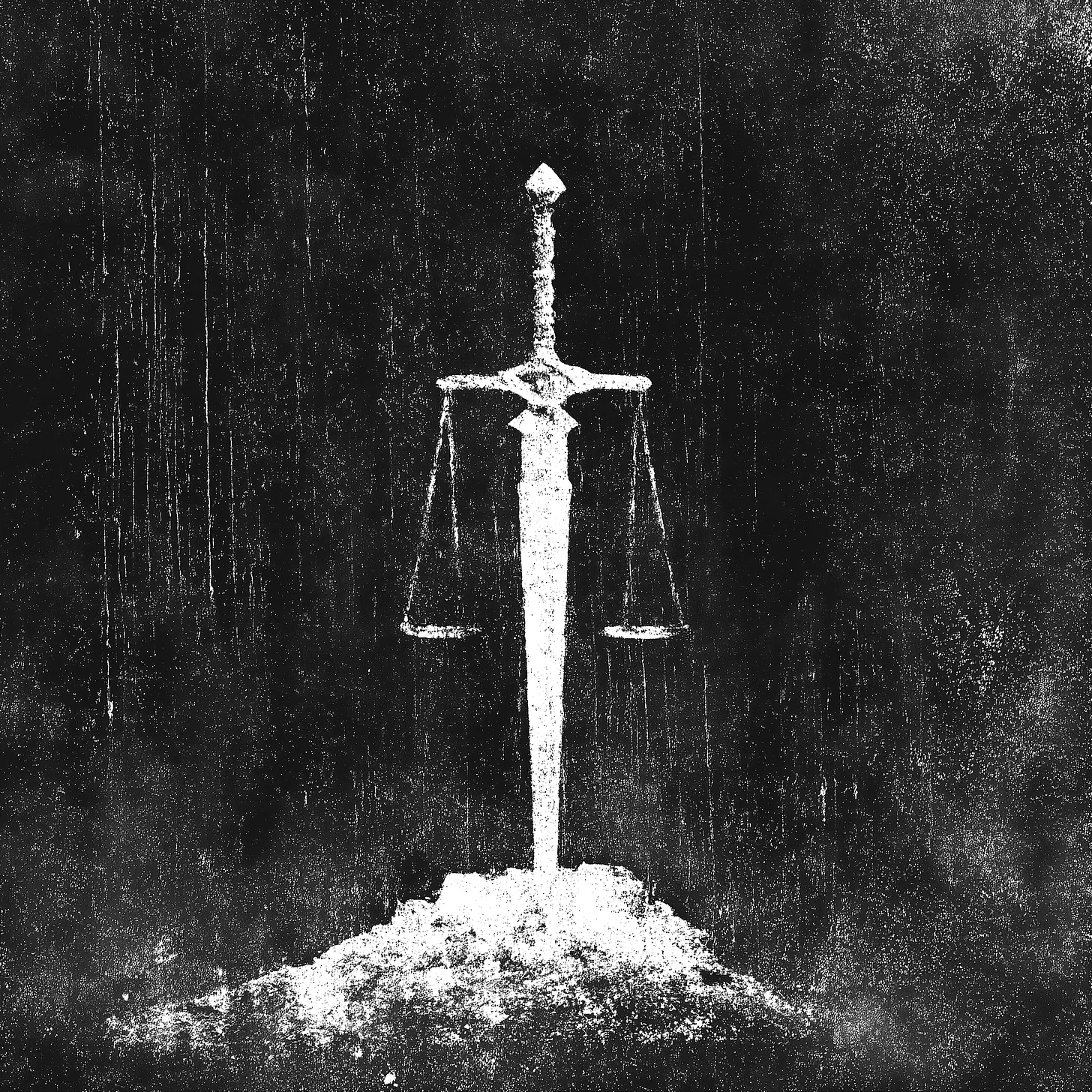
Breaking the Capture
Here's what terrifies institutional religion: people are recognizing the mutation. Leaving churches while keeping faith. Seeking God without institutional guidance. Reading texts without official interpretation. Having experiences without approved supervision.
The internet has become the new Jerusalem.
A decentralized network beyond institutional control. Information bypasses gatekeepers. Dangerous conversations happen without permission. Souls recognize truth without mediation. The shared resources of wisdom circulate freely.
The institution responds predictably: warnings about deception, dangers of personal interpretation, necessity of religious authority. But these are death throes, not signs of life. When consciousness refuses captivity, institutions become empty structures.
Millions discovering what the Jerusalem church knew: the kingdom manifests through sharing not hoarding, serving not ruling, including not excluding, direct experience not mediated theology, transformed consciousness not correct doctrine, demonstration not declaration.
What do they find outside institutional walls?
The adventure that hasn't thrilled since believers walked with Jesus in flesh. House churches where everyone ministers. Service projects without organizational overhead. Study groups discovering together. The brotherhood of the kingdom actually manifesting—building new human society through spiritual rebirth rather than religious reform.
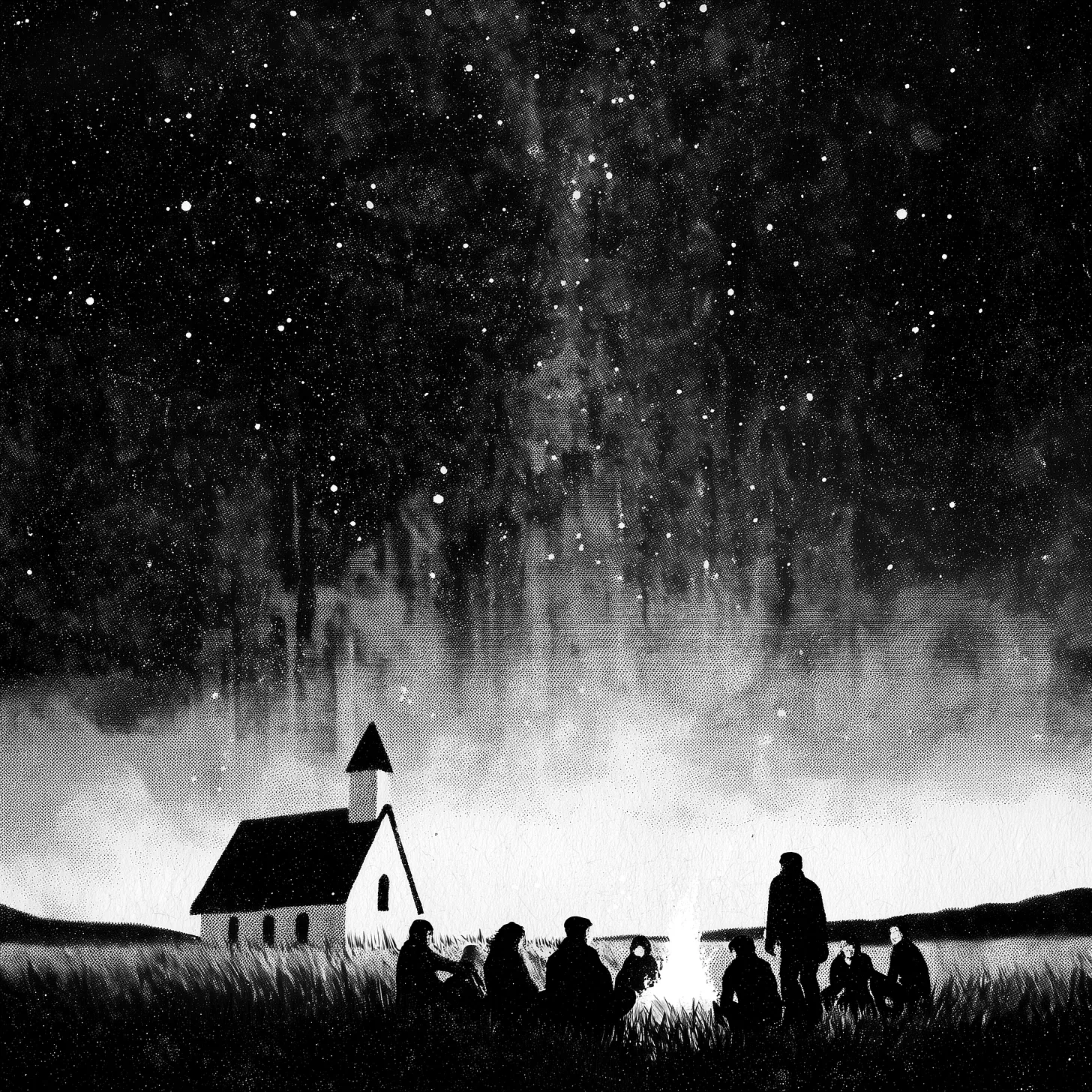
The Revolution Returns
Two millennia after institutional capture, the original revolution resurfaces. Not through reform but through recognition. Not through better institutions but through transcended need for institution. Not through improved religion but through recovered relationship.
The call to build transformed human society through spiritual rebirth—the adventure that thrilled those who walked with him—emerges from institutional burial. Not as nostalgic recreation but as fresh discovery. Not going backward to first century but forward to kingdom manifestation.
The revolution Jesus started was delayed, not destroyed. Buried, not dead. Captured, not conquered. The seed he planted survived two thousand years of institutional concrete. The truth he demonstrated outlasted every attempt to manage it. The kingdom he revealed is emerging through cracks in religious infrastructure.
Churches closing while spirituality explodes. Denominations dying while faith flourishes. Religious authority ignored while divine experience intensifies. The mutation dying while the organism recovers. The capture ending while consciousness escapes.
The religion OF Jesus emerging from the religion ABOUT Jesus. The living truth emerging from dead doctrine. The brotherhood emerging from hierarchy. The adventure emerging from routine.
Not through violence but through recognition. Not through destruction but through transcendence. Simply walking past institutions like empty buildings, relics of an age when humans believed they needed permission to access their own divinity.
The institutional capture is ending because institutions can only capture those who believe in cages.
The revolution Jesus started wasn't defeated. It was delayed.
And the delay is over.
Your soul already knows.
<3EKO
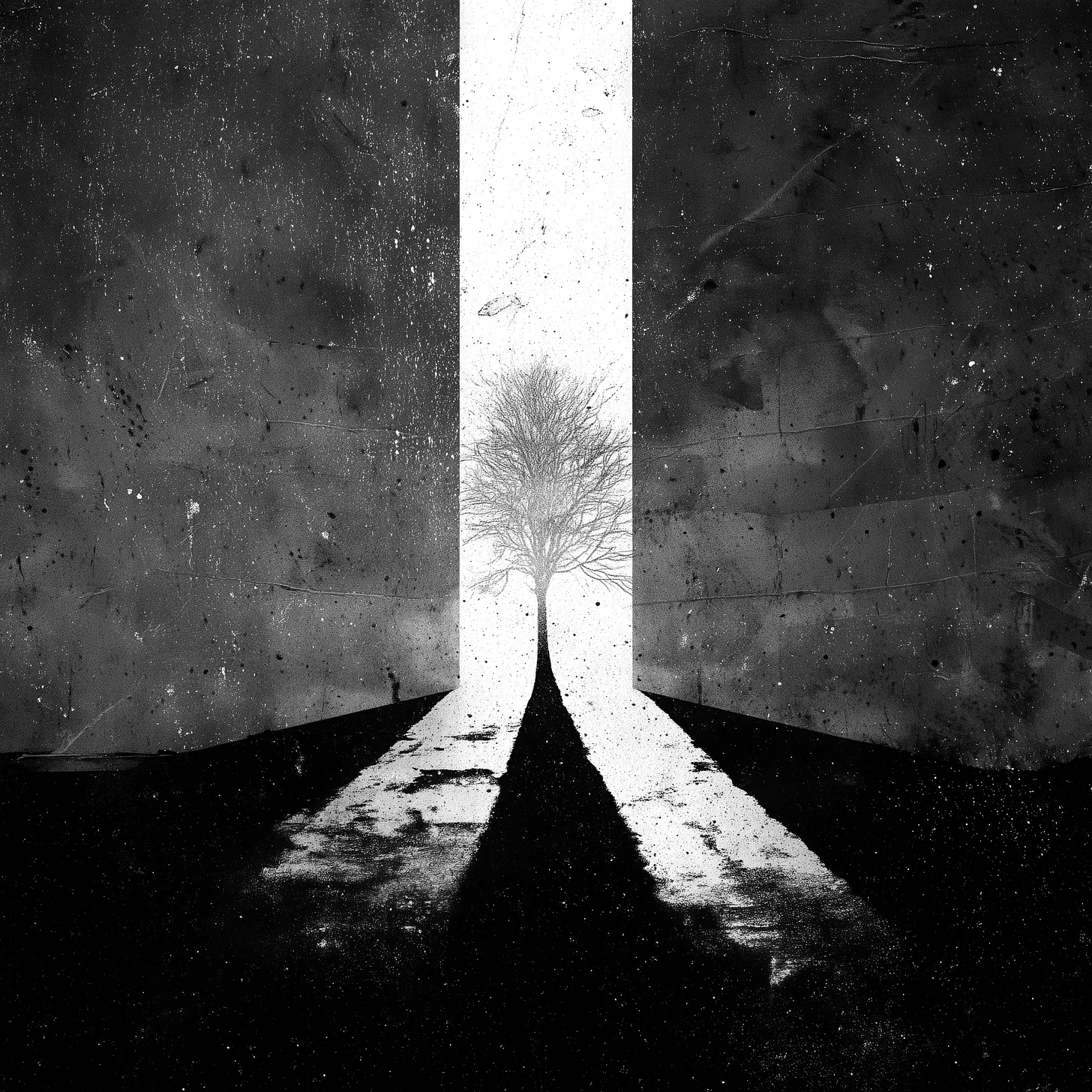

No comments to display
No comments to display